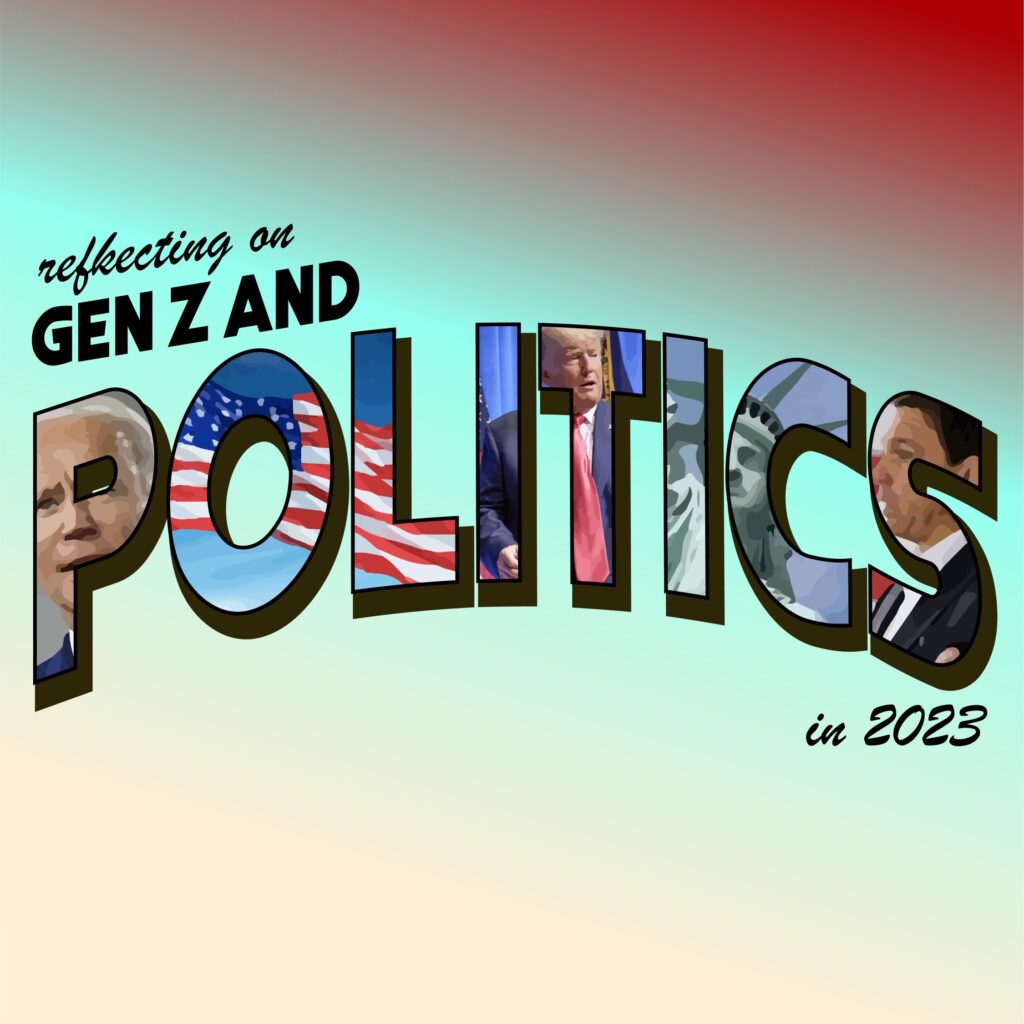For some young Americans, no civic landmark is as important as their 18th birthday. Finally, they can vote. But for an increasing number of members of Gen-Z, registering to vote isn’t where their civic journeys end. It’s just the start.
According to a report published by the CIRCLE research group at Tufts University, young adults between the ages of 18 and 25 are launching their own political campaigns at an unprecedented rate. Between the start of Maxwell Frost’s historic term in the House of Representatives and the tenacity with which Justin Pearson and Justin Jones stood their ground in the chambers of the Tennessee Capital, the past two years have shown us the potential of Gen-Z’s “Disruptor Politicians.” Now, more members of their generation are looking to join their ranks in Washington and in their state offices.
While an initial survey Congressional candidates seems to suggest they fall more in line with the average age of sitting Congress members, there are a few noteworthy candidates looking to provide Gen-Z with the representation they’re finally eligible to claim.

Cheyenne Hunt (26)
A graduate of the University of California Irvine, School of Law, 26-year-old Cheyenne Hunt is creating her own path to become the youngest woman elected to the House of Representatives. Hunt is competing against four other Democrats for the party’s nomination to go up against Representative Michelle Steel, the Republican incumbent of California’s 45th Congressional District.
To the ballot, Hunt brings both the fresh Gen-Z perspective and an impressive resume filled with political experience — including a stint on the staff of Senator Amy Klobuchar. Both to share her political knowledge and generate support for her campaign, Hunt has taken to TikTok where she regularly uploads videos addressing national political developments. On her account, @cheyennehuntca, she has garnered nearly 100,000 followers. In her fight for a seat in Congress, Hunt has no intentions in leaving her fellow Gen-Zers behind. If she wins the nomination, they’ll certainly play a key part in that victory.
Bo Hines (28)
Despite facing a loss to Democrat Wiley Nickel in 2022, Gen-Z politician Bo Hines has thrown his hat back into the ring to bid for another one of North Carolina’s Congressional seats this election cycle. He’s currently vying for the Republican nomination in order to challenge Democrat Kathy Manning for North Carolina’s 6th Congressional District.
Hines is running on a platform of “America First” and is eager to share with potential voters the endorsements he’s earned from former president Donald Trump. Some of the issues his platform highlights include free speech, improved infrastructure in rural areas, and protecting the 2nd Amendment.
Though Gen-Z politicians are typically thought to be members of the Democratic party, Hines, alongside Karoline Leavitt, another Gen-Z candidate from 2022, have shown that young people on both sides of the political spectrum have the conviction necessary to make their political mark from within the legislative offices.
Joe Vogel (27)
A current member of Maryland’s General Assembly, Joe Vogel is a Gen-Z political candidate who has already started his career as an elected official. Next November, Vogel is looking to make a leap from state politics to national as the seat for Maryland’s 6th Congressional District opens up. It’ll be a difficult journey for Vogel; considering there’s a vacancy to be filled, there’s a wealth of candidates from various parties vying for the seat.
If Vogel is successful, his victory will represent an important win not only for Gen-Z but American immigrants as well — Vogel emigrated from Uruguay with his family when he was just a toddler. Considering Vogel’s impressive achievements in the State Assembly which, according to his website, include passing a bill to improve fentanyl testing in hospitals and establishing a commission to prevent hate crimes in the state of Maryland, such a victory would be well-deserved.
Isaiah Martin (25)
Texas, it seems, is serving as an incubator for Gen-Z political talent in the 2024 cycle. In addition to a number of Gen-Z candidates like 24-year-old Tsion Amare and former Miss Texas Averie Bishop running for state office, 25-year-old Isaiah Martin is looking to follow in Representative Frost’s footsteps by being elected to office in the same year he became eligible. Martin is running against incumbent Sheila Jackson to represent Texas’ 18th District in the House of Representatives.
Like many of Martin’s Gen-Z contemporaries, he’s utilized social media outreach as a key campaign strategy. On his campaign website, he includes a quick link to his TikTok account alongside links to his profiles on more traditional platforms like Facebook and Instagram. His “About” page highlights the activism and advocacy work he did while still a student at the University of Houston. A hallmark of the Gen-Z politician is to not just make promises about how they’ll use politics to make change once elected, but to showcase what changes they’ve already caused politics to make.
While these names are just a sampling of the Gen-Z candidates seeking a spot in national politics, many more are vying for positions in state and local government. According to research conducted by the Future Caucus, a bipartisan organization empowering Gen-Z and millennial policymakers, 73 members of Gen-Z were elected to state legislative seats in the 2022 midterm elections.
Both at the state and national level, the 2024 elections represent an important opportunity for the next generation of political leaders. With their diverse academic and professional backgrounds, Gen-Z’s candidates have proven that despite their age, they’re well equipped to be the faces of political change. In fact, they’ve already started to prove it. According to CIRCLE, Gen-Z is already proving to be a more politically active cohort of young adults than previous generations.
Now that larger portions of the generation are meeting age requirements for both voting and candidacy, only time will tell if these robust political foundations will be taken all the way to Washington.



